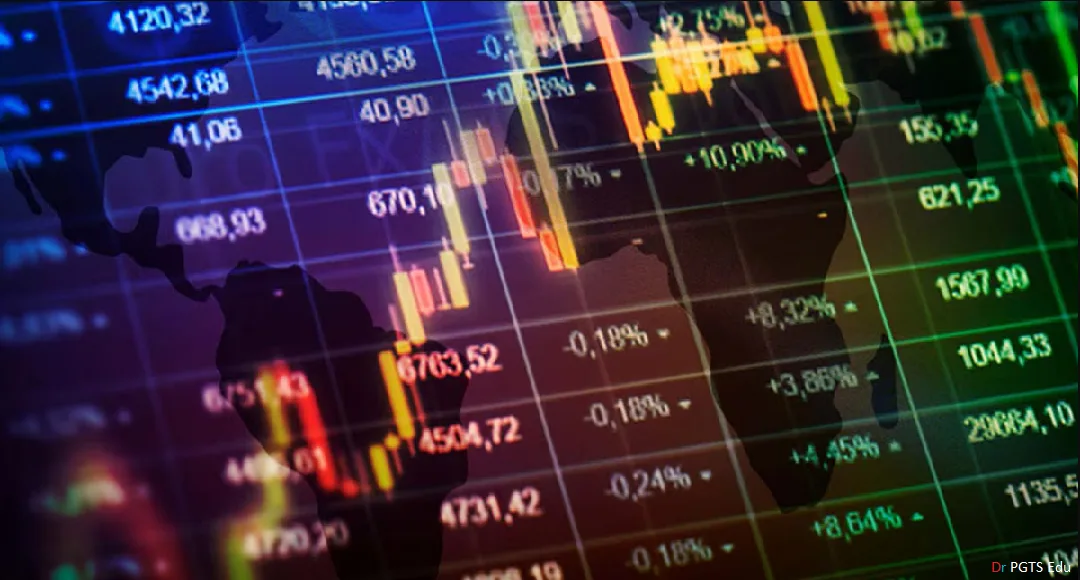The global market is an interconnected network of economies, businesses, and financial systems that influence trade, investment, and economic growth worldwide. As we step into 2025, investors need to stay ahead of emerging trends to make informed decisions. This article explores the meaning, features, types, functions, merits, demerits, and the state of the global market in India.
Meaning of the Global Market
The global market refers to the exchange of goods, services, and investments across international borders. It allows businesses and investors to expand their reach beyond domestic limitations, fostering economic integration and competition on a worldwide scale.
Features of the Global Market
- Interconnected Economies – Countries and businesses are linked through trade agreements, supply chains, and financial transactions.
- Technological Advancements – Digitalization, automation, and AI-driven trading systems shape market dynamics.
- Diverse Investment Opportunities – Investors can access equities, commodities, bonds, and digital assets across multiple economies.
- Regulatory Differences – Varying economic policies, taxation laws, and market regulations impact investments.
- Volatility and Risk Factors – Currency fluctuations, geopolitical issues, and economic crises influence market performance.
Types of Global Markets
- Stock Market – Shares of multinational corporations are traded globally (e.g., NYSE, NASDAQ, London Stock Exchange).
- Foreign Exchange (Forex) Market – The world’s largest financial market, where currencies are traded 24/7.
- Commodity Market – Includes trading of natural resources like oil, gold, and agricultural products.
- Bond Market – Governments and corporations issue bonds to raise capital internationally.
- Digital Asset Market – Cryptocurrency and blockchain-based assets are gaining prominence in global investment portfolios.

Functions of the Global Market
- Facilitates Trade and Investment – Businesses can expand internationally, attracting foreign investors.
- Enhances Economic Growth – Free trade agreements and open markets contribute to economic development.
- Determines Currency Exchange Rates – Forex markets influence global economic stability.
- Encourages Innovation and Competition – Companies innovate to stay competitive in a diverse marketplace.
- Helps in Risk Diversification – Investors can allocate funds across various economies to mitigate risks.
Merits of the Global Market
- Access to a Larger Consumer Base – Businesses can sell products worldwide, increasing revenue potential.
- Increased Capital Flow – Investors can move funds across borders, leading to higher returns.
- Economic Stability through Trade – Countries benefit from global commerce and economic partnerships.
- Technological Advancement – Encourages the adoption of new technologies and business models.
- Diversified Investment Portfolios – Investors can minimize risk by investing in different regions and industries.
Demerits of the Global Market
- Market Volatility – Economic downturns, trade wars, and political instability can cause sudden financial losses.
- Regulatory Complexities – Varying international regulations pose challenges for businesses and investors.
- Unequal Wealth Distribution – Developed nations often benefit more than developing countries.
- Threat to Domestic Industries – Local businesses may struggle against global competition.
- Cybersecurity Risks – Increased digital transactions heighten the risk of fraud and cyber-attacks.
Global Market in India
India plays a significant role in the global market due to its rapidly growing economy and favorable business environment. Key factors shaping India’s market in 2025 include:

- Booming Startups and Tech Industry – India is a hub for fintech, e-commerce, and IT services.
- Foreign Direct Investment (FDI) Growth – Increased global investor confidence in Indian markets.
- Manufacturing and Export Expansion – Government initiatives like “Make in India” are boosting industrial output.
- Digital Payments and E-commerce Rise – The shift towards a digital economy is accelerating international trade.
- Challenges in Regulatory Policies – Investors must navigate evolving tax laws and compliance requirements.
The global market in 2025 presents both opportunities and challenges for investors. By understanding market trends, economic factors, and regional differences, investors can make informed decisions to optimize returns. India’s evolving market landscape offers promising prospects, making it a key player in the international economy. Staying updated with global trends and strategic investments will be essential for success in the coming years.
Read also: Sensex nifty stock market secrets how to profit from sensex and nifty trends

